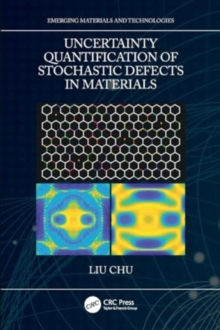
Error-Tolerant Biochemical Sample Preparation with Microfluidic Lab-on-Chip PDF
by Sudip Poddar, Bhargab B. Bhattacharya
Part of the Emerging Materials and Technologies series
Description
Microfluidic biochips have gained prominence due to their versatile applications to biochemistry and health-care domains such as point-of-care clinical diagnosis of tropical and cardiovascular diseases, cancer, diabetes, toxicity analysis, and for the mitigation of the global HIV crisis, among others. Microfluidic Lab-on-Chips (LoCs) offer a convenient platform for emulating various fluidic operations in an automated fashion. However, because of the inherent uncertainty of fluidic operations, the outcome of biochemical experiments performed on-chip can be erroneous even if the chip is tested a priori and deemed to be defect-free. This book focuses on the issues encountered in reliable sample preparation with digital microfluidic biochips (DMFBs), particularly in an error-prone environment. It presents state-of-the-art error management techniques and underlying algorithmic challenges along with their comparative discussions.
- Describes a comprehensive framework for designing a robust and error-tolerant biomedical system which will help in migrating from cumbersome medical laboratory tasks to small-sized LOC-based systems
- Presents a comparative study on current error-tolerant strategies for robust sample preparation using DMFBs and reports on efficient algorithms for error-tolerant sample dilution using these devices
- Illustrates how algorithmic engineering, cyber-physical tools, and software techniques are helpful in implementing fault tolerance
- Covers the challenges associated with design automation for biochemical sample preparation
- Teaches how to implement biochemical protocols using software-controlled microfluidic biochips
Interdisciplinary in its coverage, this reference is written for practitioners and researchers in biochemical, biomedical, electrical, computer, and mechanical engineering, especially those involved in LOC or bio-MEMS design.
Information
-
Download - Immediately Available
- Format:PDF
- Pages:222 pages
- Publisher:CRC Press
- Publication Date:27/07/2022
- Category:
- ISBN:9781000612707
Other Formats
- EPUB from £82.79
- Hardback from £91.65
Information
-
Download - Immediately Available
- Format:PDF
- Pages:222 pages
- Publisher:CRC Press
- Publication Date:27/07/2022
- Category:
- ISBN:9781000612707










